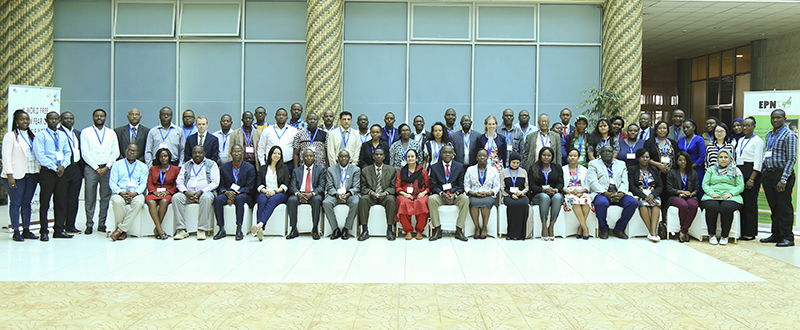2018-12-20
During 2018 ReAct Africa helped putting antibiotic resistance on the agenda in the African region by engaging various countries and organizations in the region. This by giving technical and financial support to three African countries developing their National Action Plans on AMR, by holding two important regional stake holder forums and by engaging civil society during World Antibiotic Awareness Week.
Technical and financial support in 3 African countries

ReAct Africa offered technical and financial support to Malawi, Kenya and Zambia in developing and implementing their respective National Action Plans on Antimicrobial Resistance (AMR).
In Malawi, the developed National Action Plan on AMR was launched during the annual World Antibiotic Awareness Week celebrations.
In Kenya, the first draft of the national guidelines on antimicrobial stewardship was developed. It will be finalized and launched during the first quarter of 2019.
In Zambia, a three-day workshop was conducted for healthcare workers with the aim of establishing antimicrobial stewardship and infection prevention and control programs in pilot healthcare facilities. It is anticipated that these pilot health facilities will eventually be centres of excellence that will be used to train and mentor other health facilities in combating antimicrobial resistance.
Discussions with Zimbabwe, Zambia, Nigeria and Kenya are ongoing to see how to support them in the implementation of National Action Plans on AMR.
Two important forums for change

ReAct Africa hosted two regional forums in Nairobi, Kenya during 2018.
The first one was the 3rd ReAct Africa Annual Conference “Combating Antimicrobial Resistance in Africa to achieve the 2030 Agenda” in partnership with South Centre in the beginning of November. 67 participants from 22 countries were in attendance with a truly One Health representation from the human health, animal health, agriculture and environment sectors. The conference identified successes, challenges and recommendations for the implementation of National Action Plans on Antimicrobial Resistance in relation to the sustainable development goals as well as global governance.
The second forum was a workshop on “Setting AMR research priorities in Africa” from 3rd to 5th December 2018. Research priorities generated were based on the strategic areas of the Global Action Plan on AMR as well as environment and gender inequalities. The workshop brought together 70 participants from 28 countries in Africa. This workshop was supported financially by the Swedish International Development Cooperation Agency (SIDA).
Read articles on: Upcoming ReAct Africa Conference focuses on AMR and Agenda 2030 within the African context and Combating antimicrobial resistance in Africa to achieve the 2030 Agenda.
Engaging civil society in the region

In its efforts to improve the awareness and understanding of antimicrobial resistance as a multi-sectoral challenge, ReAct Africa engaged six African countries to organize and conduct public events during World Antibiotic Awareness Week celebrations from mid November. The countries included Uganda, Zimbabwe, Kenya, Nigeria, Sierra Leone and Malawi.
ReAct Africa also attended the Africa Center for Disease Control (CDC) workshop in Addis Ababa mid December, to engage African civil society organizations (both from AMR-specific and AMR-sensitive sectors) on antimicrobial resistance. The meeting was the start of the establishment of a strong civil society movement to catalyze the much-needed engagement with civil society organizations in ensuring political commitment of our African governments, in matters addressing antimicrobial resistance.
